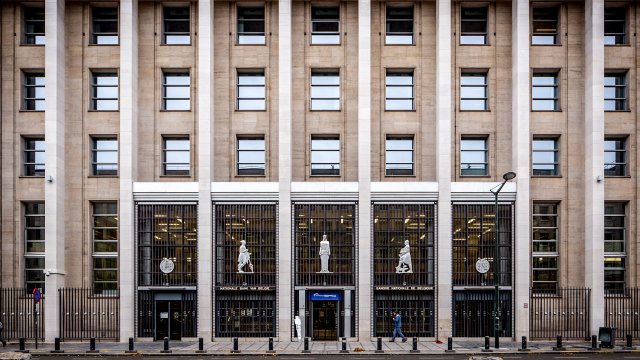The National Bank of Belgium (NBB) sees room for increasing interest rates on savings accounts, but advised the Federal Government against raising the legal minimum rate, according to new advice to Federal Finance Minister Vincent Van Peteghem.
The National Bank once again reiterated what it has been saying since March: interest rates on savings accounts can go up, but an abrupt increase would leave banks suffering heavy losses, it stated in a new report.
"As there is margin to meet the concerns, the NBB recommends that banks continue working towards a gradual increase in the remuneration of regulated savings accounts, which should eventually be closer to the ECB rate," the report reads. "This will also perpetuate the stable character of this important source of funding for the banking sector and lending in Belgium."
By contrast, the legislative intervention as described in the proposed bills (an increase in the mandatory minimum interest rate) may have "far-reaching consequences for banks' profitability, interest rate risk management and solvency and, by extension, financial stability," the NBB said. "Based on these elements, the Bank's opinion on the submitted bills is therefore negative."
Pressure is growing
Concretely, this means that the NBB says raising the minimum savings rate is a bad idea because it could cause some banks problems. Earlier this week, Deputy Governor Steven Vanackere also pointed out that there is "great heterogeneity" among Belgian banks: some have few savings accounts outstanding, while others have many. The latter category could get into trouble by raising the minimum savings rate.
Or, in the words of the National Bank: "For banks with a high percentage of savings accounts, simulations by the Bank show that such banks would face very significant losses if the gradual transition to higher interest rates on the savings account gave way to a government intervention whereby the remuneration on the savings account would be raised in an accelerated and abrupt manner."
In recent weeks, banks have been under growing pressure to raise interest rates on savings accounts after they recently got 3.25% interest on the many billions they have parked at the European Central Bank (ECB).
Related News
- Belgian banks can increase savings rates by 1.25 percentage points
- Belgian banks push back against Government calls to raise savings rates
- Banks must raise savings interest rates, say Flemish socialists
As housing loans, for example, have gradually been getting more expensive recently while interest rates on saving accounts barely went up with them, many savers have voiced their complaints.
Therefore, the Vooruit party proposed to link the legal minimum interest rate on savings accounts to the interest rate banks get from the ECB, with a margin of 2%. This would bring the interest rate to 1.25% – today, it is a minimum of 0.11%.
However, the banking sector is forcefully against that proposal: such a move would leave banks very vulnerable, it said.
To provide clarity, Van Peteghem enlisted the help of the National Bank, which validated the banking sector's concerns in a new opinion. "Intervening in the minimum interests of the savings account the way the bills propose could generate important undesirable side effects and pose a real threat to the stability of our banking sector."
Gigantic profits, minuscule interest rates
At the same time, the National Bank indicated that there is room to raise savings rates "closer to the ECB rate," which would also be in the interest of the banks themselves. After all, savings are an important and stable source of funding for the banking sector. If interest rates stay this low, savers risk taking their money away and putting it into other products.
On Friday, Van Peteghem will present the opinion to the Federal Government, but the Green parties already said they were delighted that the National Bank is also (once again) advocating a rise in savings rates.
"The difference between the gigantic profits of the banks and the minuscule interest rate on savings books is too big and not fair," said Federal MP for the Flemish Green Party (Groen), Dieter Van Besien.

